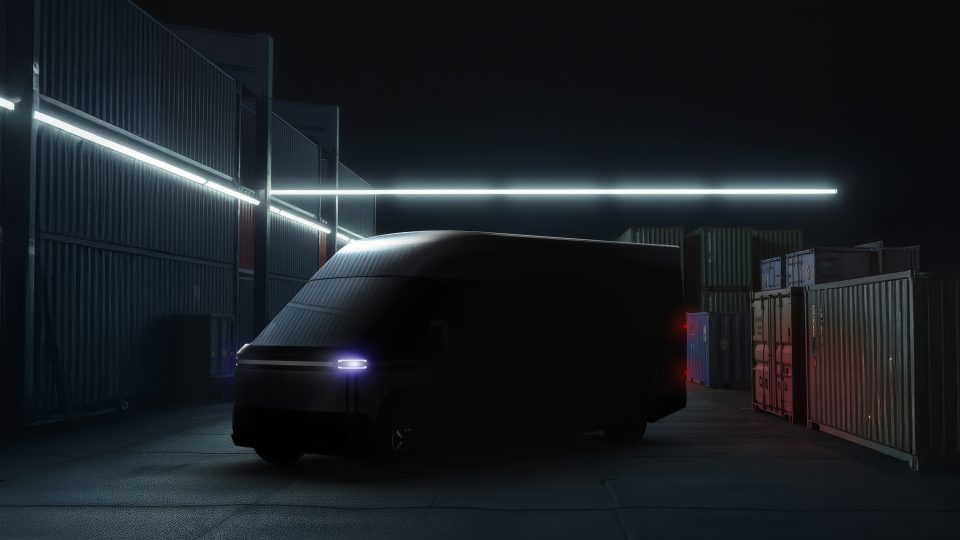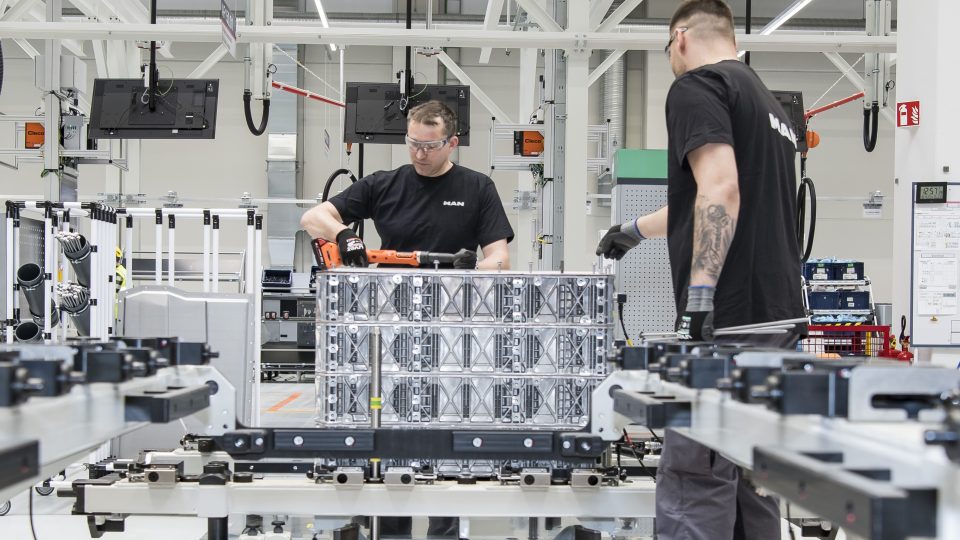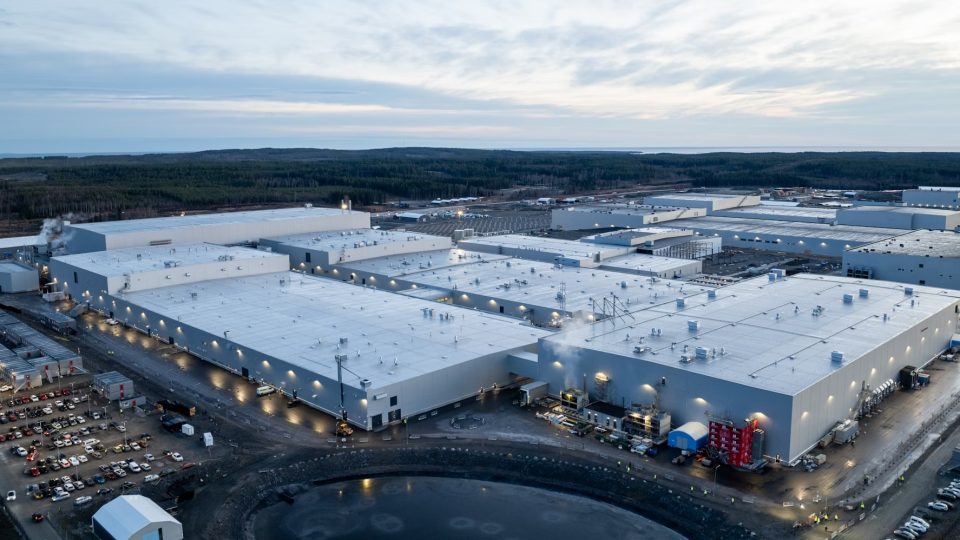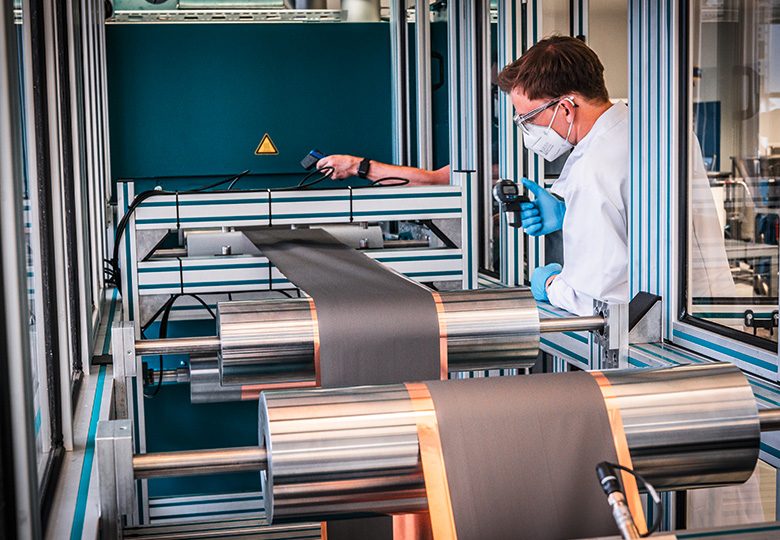Here’s how Bosch plans to make fuel cell stacks less expensive in the future
“By recycling, we can make the stacks more economical and at the same time reduce the carbon emissions associated with platinum mining,” said Thomas Pauer, the president of the Bosch Powertrain Solutions division. “We’re already laying the groundwork for recovering rare raw materials like platinum. Our estimates suggest that by 2030 at the latest, appreciable numbers of fuel cells will need recycling”.
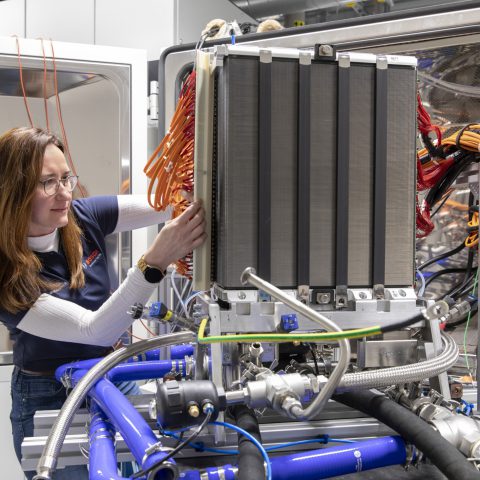
Bosch is currently producing its fuel cell stacks. The German company is working on their evolution and, through the promotion of a circular economy model, those crucial components may cost significantly less in the future. More into details, almost all the platinum in fuel-cell stacks – at least 95 percent – can be recovered.
“By recycling, we can make the stacks more economical and at the same time reduce the carbon emissions associated with platinum mining,” said Thomas Pauer, the president of the Bosch Powertrain Solutions division. “We’re already laying the groundwork for recovering rare raw materials like platinum. Our estimates suggest that by 2030 at the latest, appreciable numbers of fuel cells will need recycling”.
Bosch fuel cell stacks and the agreement reached with Hylane
A first, important step in this direction is an agreement with the mobility provider Hylane, which provides for the repurchase of fuel-cell stacks by Bosch when their useful lives expire. Some of the hydrogen trucks leased by the Cologne-based startup feature Bosch fuel-cell power modules. In the long term, this model agreement could serve as a blueprint for further Bosch fuel-cell activities, both mobile and distributed, as well as for electrolysis stacks.
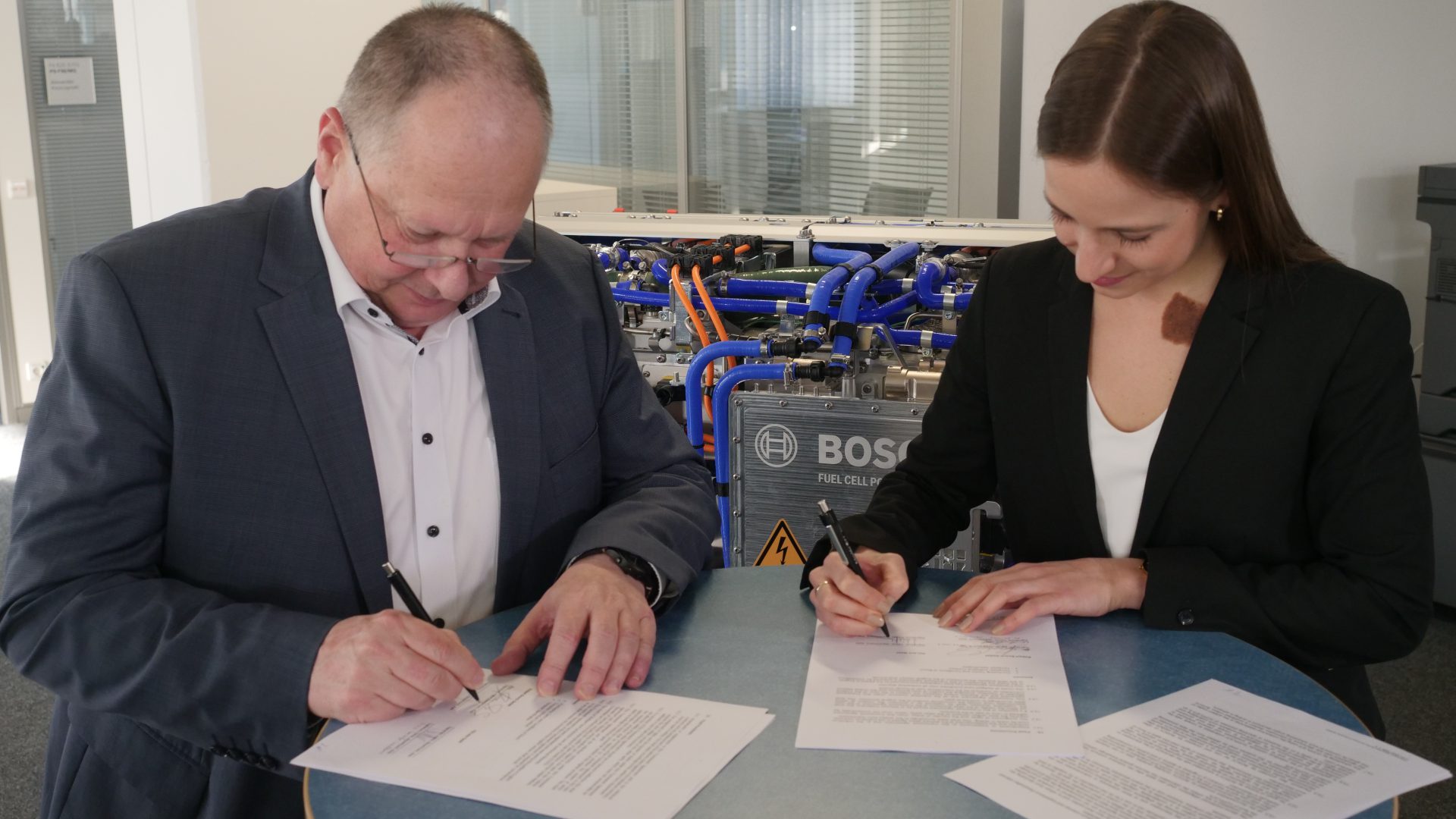
Under the new model agreement with Hylane, Bosch is guaranteed an option to repurchase stacks for mobile applications. The stacks themselves will be recycled by a third-party company. In the subsequent production process, Bosch will use the platinum recovered for new Hylane stacks. “We’re proud to have reached this innovative model agreement with Bosch that gives it the option to repurchase retired fuel-cell stacks. To achieve a sustainable transformation in mobility, it’s important that we consider not only vehicle use on the roads but the entire vehicle lifecycle as well,” commented Sara Schiffer, the managing director of Hylane.
According to a 2021 study by the German Mineral Resources Agency, worldwide platinum demand could increase by some 20 percent by 2040 compared to 2018 production. For fuel-cell stacks in mobile applications, the use of platinum alone accounts for over 80 percent of the stack’s carbon footprint.




